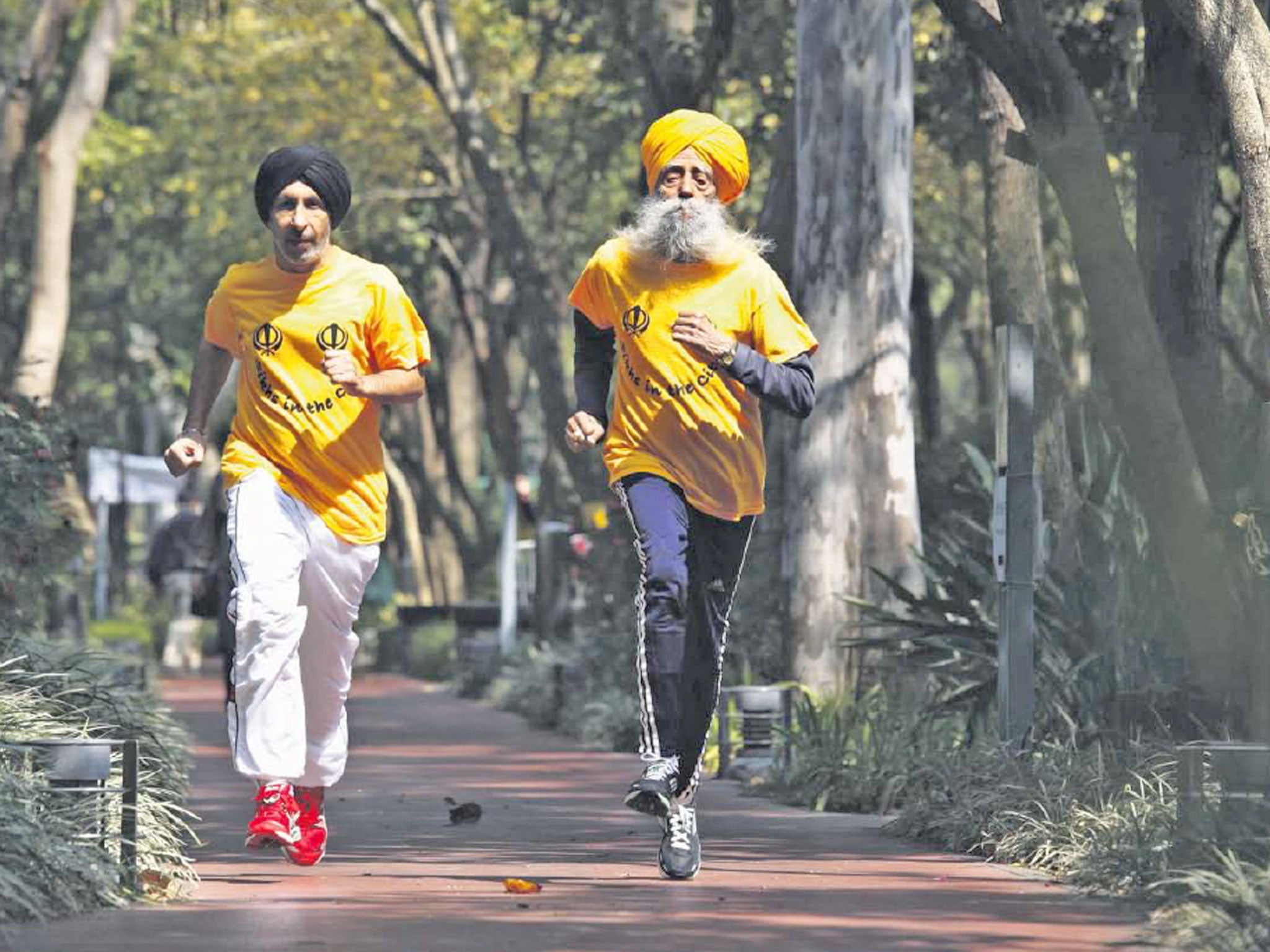Age catches up with Fauja Singh
It's been a marathon effort but the world's oldest long-distance runner finally retires today at 101

Your support helps us to tell the story
From reproductive rights to climate change to Big Tech, The Independent is on the ground when the story is developing. Whether it's investigating the financials of Elon Musk's pro-Trump PAC or producing our latest documentary, 'The A Word', which shines a light on the American women fighting for reproductive rights, we know how important it is to parse out the facts from the messaging.
At such a critical moment in US history, we need reporters on the ground. Your donation allows us to keep sending journalists to speak to both sides of the story.
The Independent is trusted by Americans across the entire political spectrum. And unlike many other quality news outlets, we choose not to lock Americans out of our reporting and analysis with paywalls. We believe quality journalism should be available to everyone, paid for by those who can afford it.
Your support makes all the difference.For the world's oldest marathon man, the final finish line is nigh. Two months short of his 102nd birthday, Fauja Singh will hang up his racing shoes after completing the 10km race that will be held in conjunction with the annual Hong Kong Marathon today.
The great-great grandfather, who hails from the Indian state of Punjab but lives in Ilford, only took up competitive running at the age of 89. After completing nine marathons – including the first on record by a 100-year-old, in Toronto two years ago – he admits that age has finally caught up with him.
"Racing is getting very tough for me," Singh said, speaking through an interpreter in Hong Kong (he is a British national but only speaks Punjabi). "I have mixed feelings but I feel I must retire on a high.
"I am hurt by the fact that I am going to retire. I do not really like the word 'retire' because I can still run and jump on a bus. It's a sense of negativity that I have never experienced before.
"I fear that when I stop running, people will no longer love me. At the moment, everyone loves me. I hope nobody will forget or ignore me. When you become old, you become like a child and you want the attention." Singh has certainly not lacked attention. Indeed, adidas used the turbaned Sikh alongside David Beckham and Muhammad Ali in their "impossible is nothing" advertising campaign.
Singh was born on a farm in the Punjab on 1 April 1911. He emigrated to England in the 1990s and lives with one of his sons in Ilford. He is the eldest member of a group of Indian-born East End runners called "Sikhs in the City".
He ran his first marathon in 2000 and clocked his fastest time at the 26.2-mile distance, 5hr 40min 04sec, in Toronto in 2003. He was 92 at the time. He completed the 2011 race in Toronto, as a 100-year-old, in 8hr 11min 06sec.
Though "the Turbaned Tornado" bows out from competitive racing today, he intends to keep on running for fun in training. "Running is my life," Singh said. "I will keep running to inspire the masses and for my personal health. I will keep running for at least four hours daily.
"I have said before that I will carry on running as it keeps me alive. The reason for my good health is that I exercise daily and follow a proper diet regime. I take happiness in the biggest portions, though my actual diet is very small.
"Nowadays, people are more interested in going to a gym, but I feel that if they exercise regularly on their own they can be physically and mentally strong. Daily exercise will keep you away from all diseases."
Singh, who stands 5ft 8in and weighs 8st 5lb, says he does not suffer from any physical ailments. A torchbearer for the London 2012 Olympics, his one regret is not being able to speak and read English.
He emigrated to England in the 1990s but is a little foggy on the exact year. "I cannot remember for sure," he said. "I used to visit my children in England in the 1980s and eventually settled for good in the 1990s. I moved to England as a way of overcoming a traumatic time in my life. My family thought it best."
The trauma was caused by the deaths of his wife and two of their children. He settled in Ilford with the family of another of his sons, Sukhjinder Singh.
Join our commenting forum
Join thought-provoking conversations, follow other Independent readers and see their replies
Comments